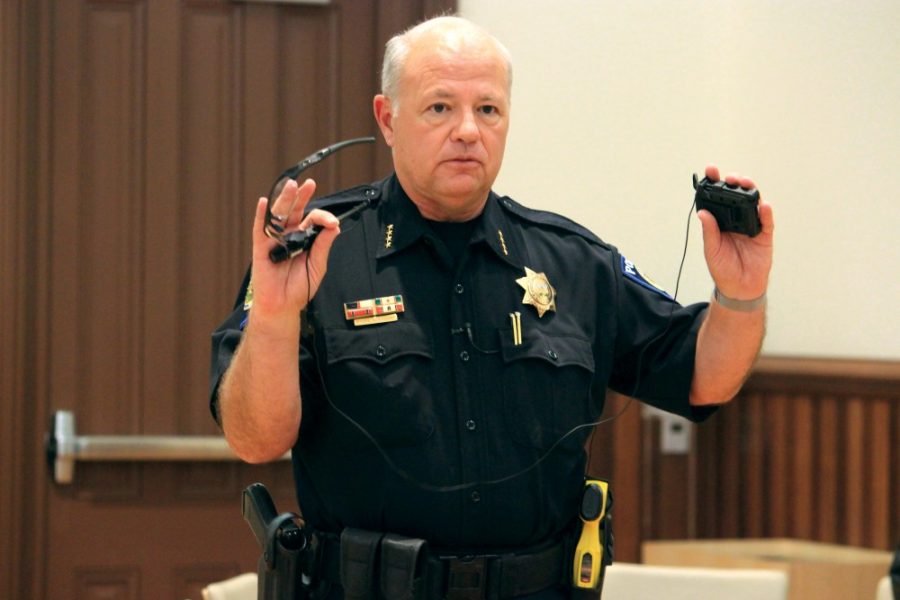University of Arizona Police Department field officers will soon be equipped with body cameras while on duty.
UAPD Chief Brian Seastone made the announcement about the body cameras at a UAPD Town Hall meeting on Thursday, also addressing other new measures regarding police protocol, campus crime and safety.
The department has been in training with the new body camera technology for the last eight months. The cameras will be implemented for field use in November.
UAPD budgeted the cost for 58 cameras and newly issued tasers at $96,000. The department will also be able to renew the body cameras every two years for the latest technology.
The footage the cameras document will be public record, meaning that anyone can request to see what was filmed.
Seastone said it was time that the department implemented body cameras to the field officers.
“The reason it’s the time is because we need to show our story,” Seastone said. “We want our officers protected, we want the community protected and we want the institution to be protected.”
Following the release of the annual “Campus Safety, Security and Fire Report,” published Wednesday, Oct. 1, Seastone talked about the most relevant crimes to the UA and fluctuations in these numbers.
In recent years, according to the report, sexual assault and other violent crimes have been on the rise. While this may look like a trend on the UA campus, Seastone said it reflects the amount of people who are willing to report these crimes.
Seastone said he has addressed the lack of community response by helping victims of violent crimes and creating an understanding and accepting environment at UAPD.
“We make sure that we put out the message that it’s not the victim’s fault,” Seastone said. “Reaching out and asking people to feel more comfortable is really working, as well as our collaboration with the Oasis Program at Campus Health.”
Seastone said sexual assault crimes increased by eight cases in the last year, domestic violence crimes increased by 13 cases and stalking by four. However, common crimes that have decreased include dating violence and crimes against property.
Seastone also gave a brief presentation of the new LiveSafe smartphone application. The app allows anyone on campus to connect directly to UAPD and to request a virtual walk home from people in their contacts. Since its debut in August, the app has shown to be useful in reporting crime, with rates of two to three reports per day.
Lauren Pierce, a psychology senior and director of operations for UA SafeRide, said she commends UAPD for its involvement in technological advancement.
“I think, most importantly, that UAPD is working more with technology and making a stronger presence here at the [UA],” Pierce said. “I think that they are making very great strides with the LiveSafe app. I have personally downloaded the app, and I think that it is a fantastic resource.”
Follow Lauren Renteria on Twitter.









